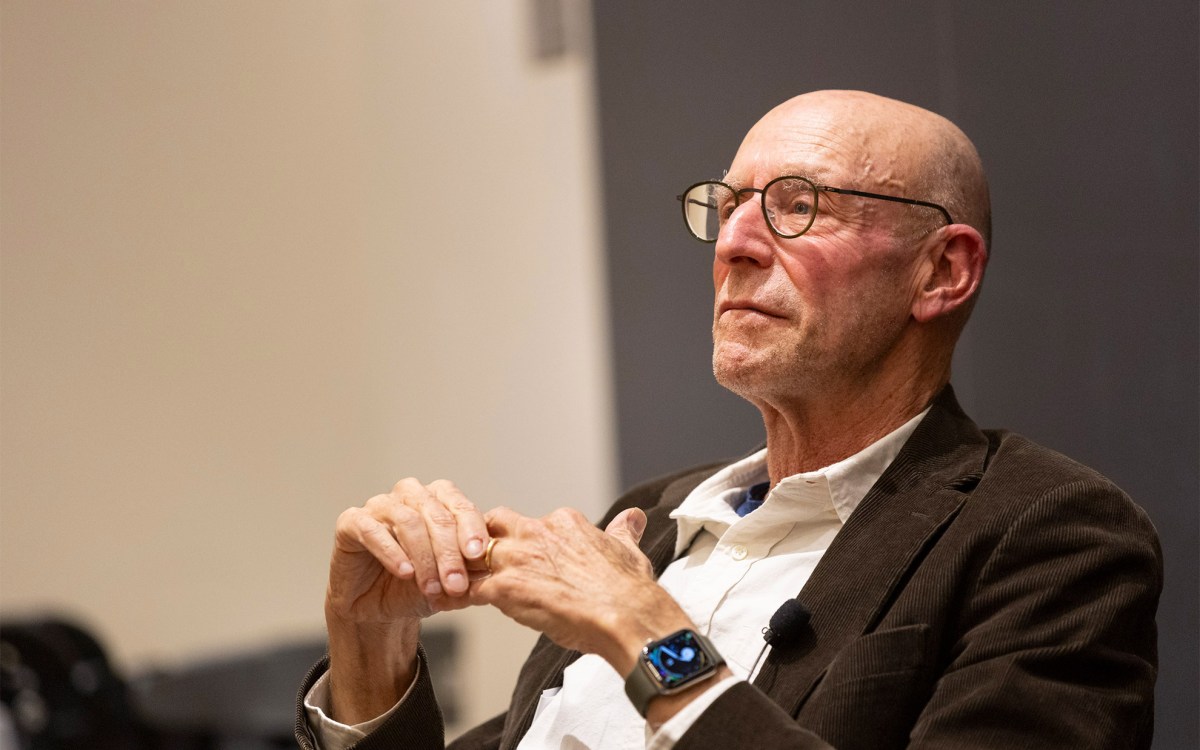Researchers debate origin of language
Do monkeys have anything interesting to say?
Birds sing, chimps grunt, and whales whistle, but those sounds fall far short of expressing the richness of their experiences. Their lack of language goes to the question of why humans have it but no other animals do. That question in turn leads to two major theories of the origin of language. One is the idea that language arises from bird song, dolphin whistles, monkey hoots, and other precursors that extend back through hundreds of millions of years of evolution. The other theory maintains that language is a uniquely human adaptation, or series of adaptations, with no precursors among other species. Marc Hauser, a Harvard professor of psychology, and his colleagues have come up with a third idea. “It’s a hypothesis that hasn’t been put on the table before,” he says, “and it opens the door to a whole new set of research questions about communication and language.” Hauser, Massachusetts Institute of Technology linguist Noam Chomsky, and Harvard psychologist W. Tecumseh Fitch argue that the difference between animal communication and human language is recursion, the ability to take discrete elements, like words or numbers, and recombine them in a way that creates an infinite variety of expression.





